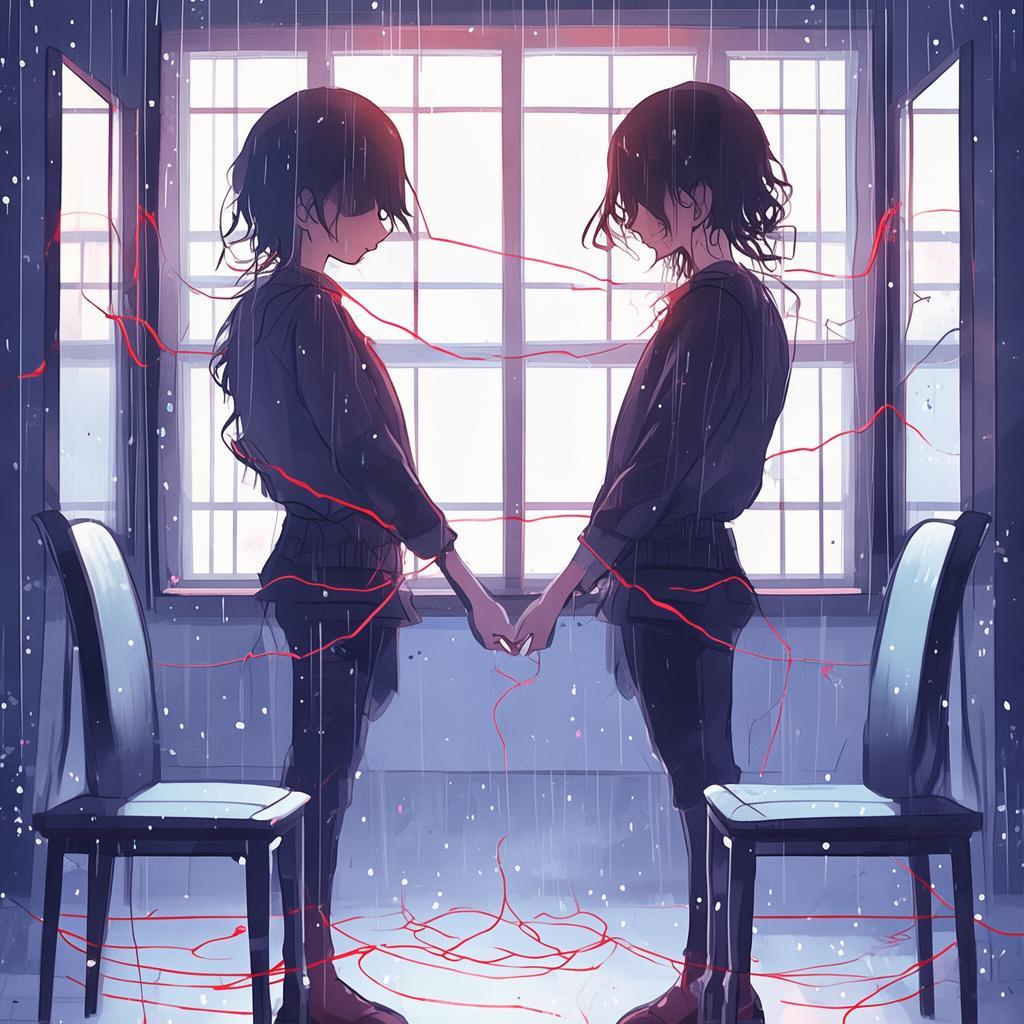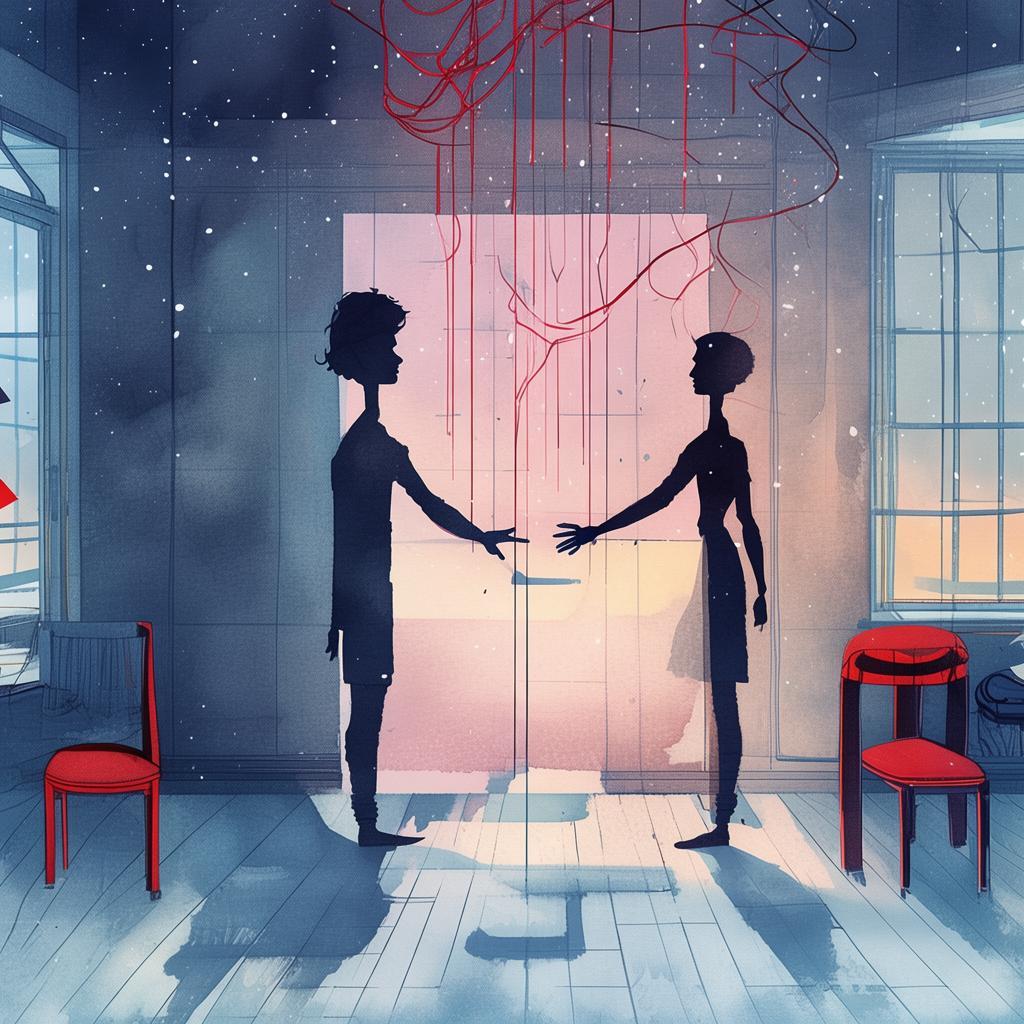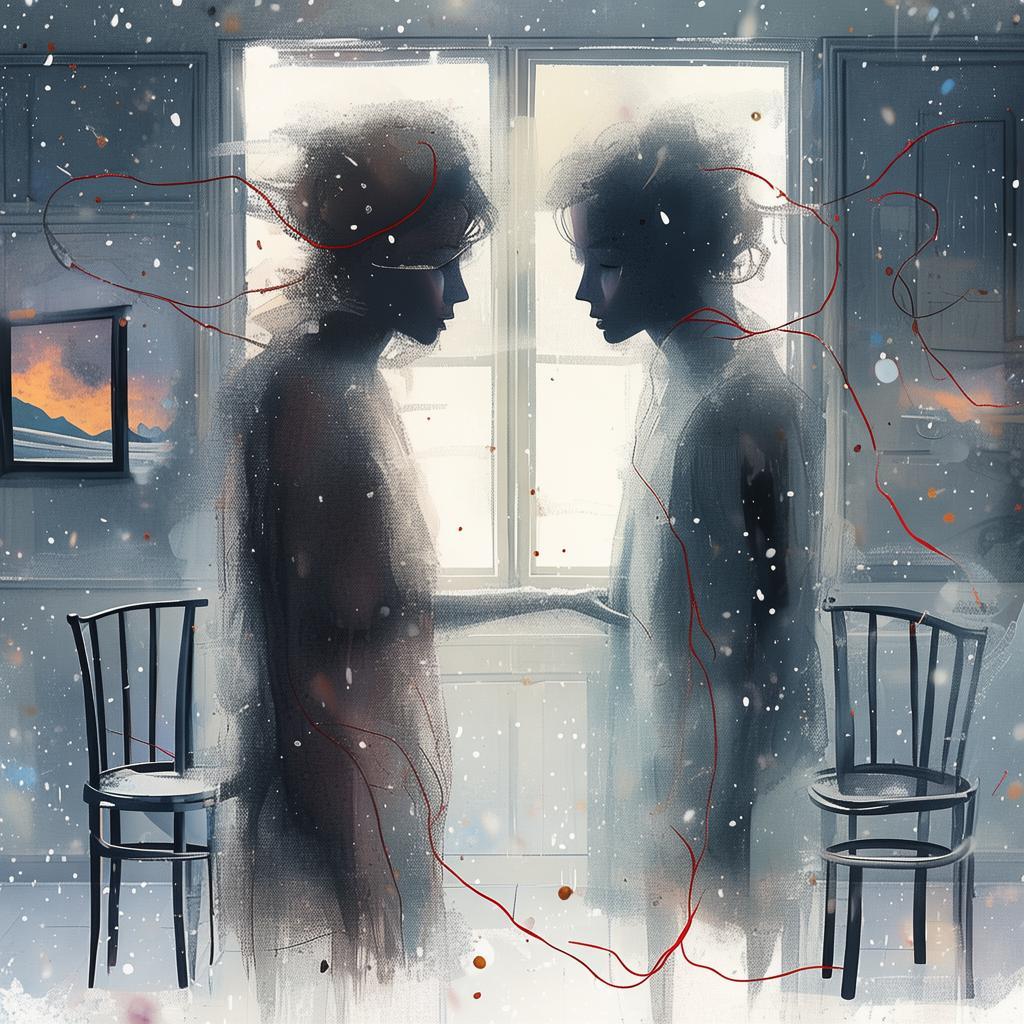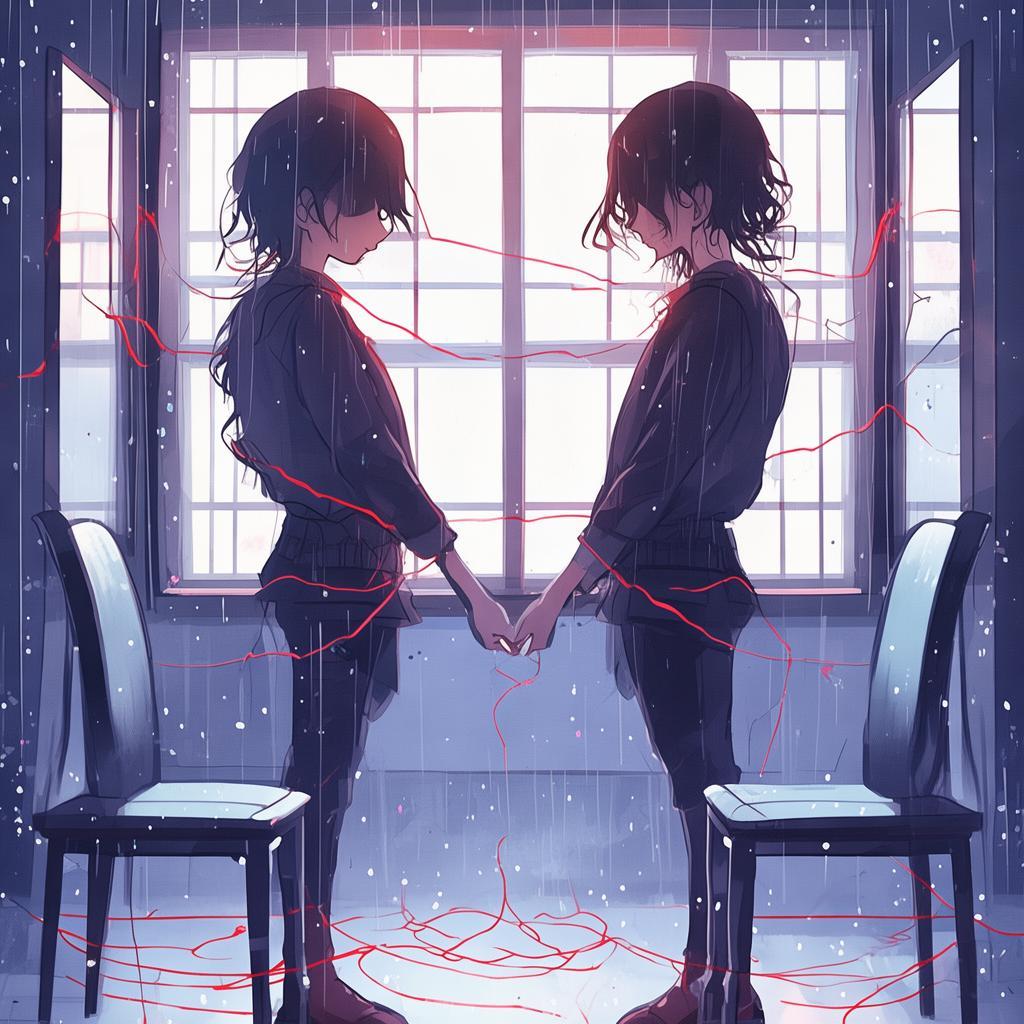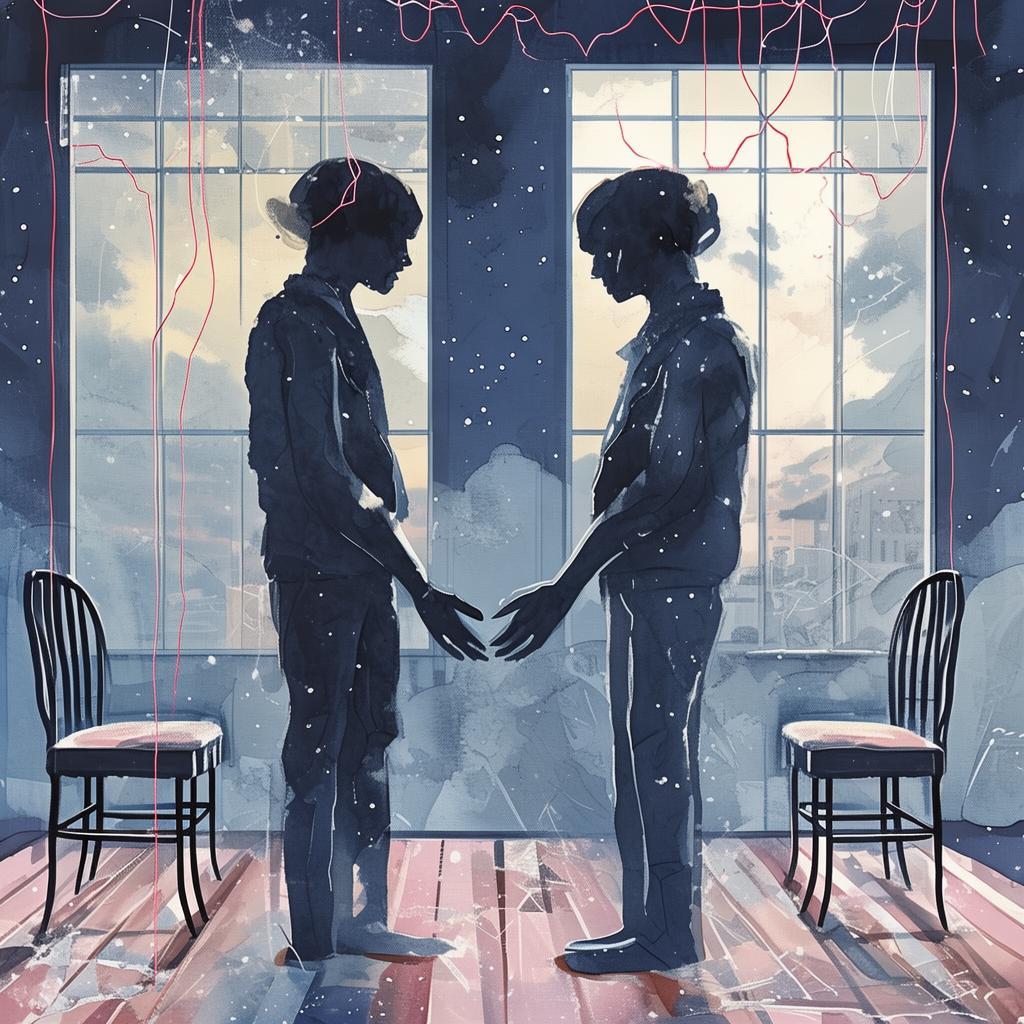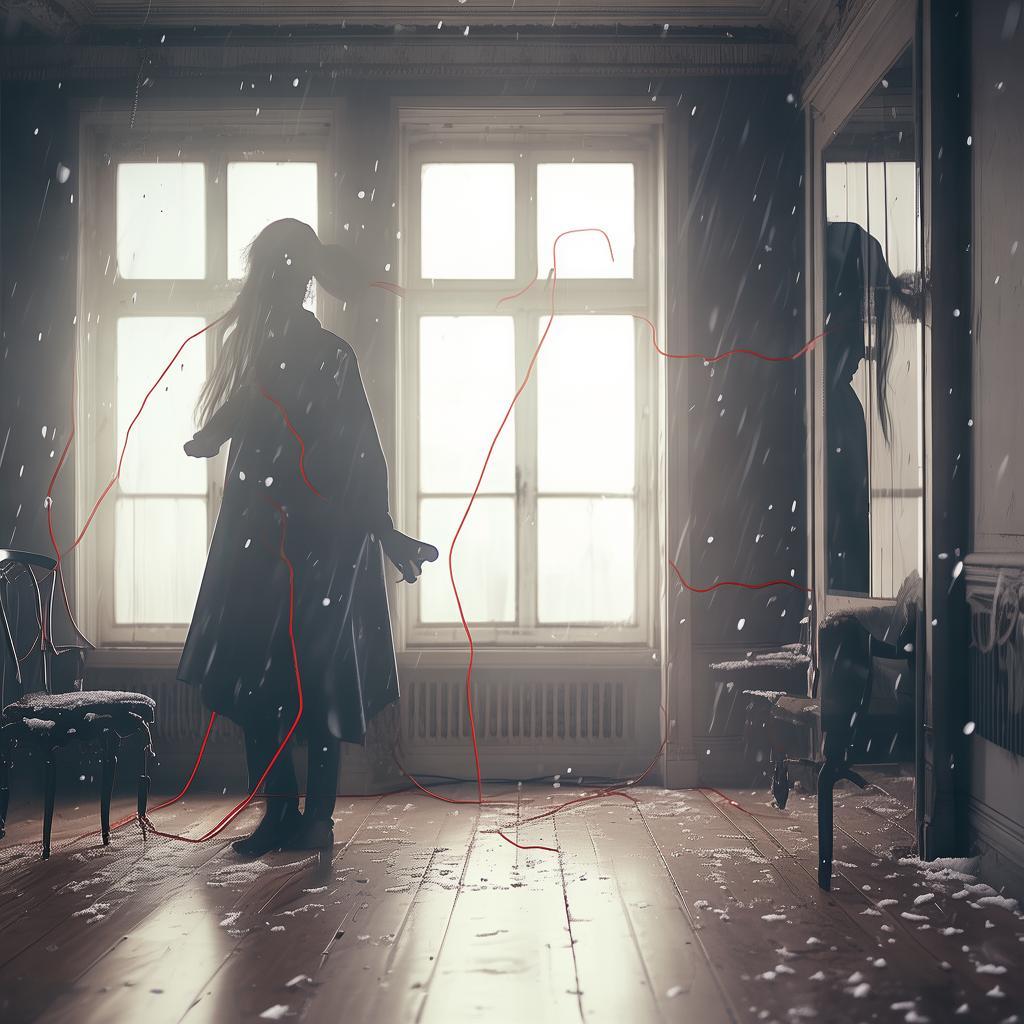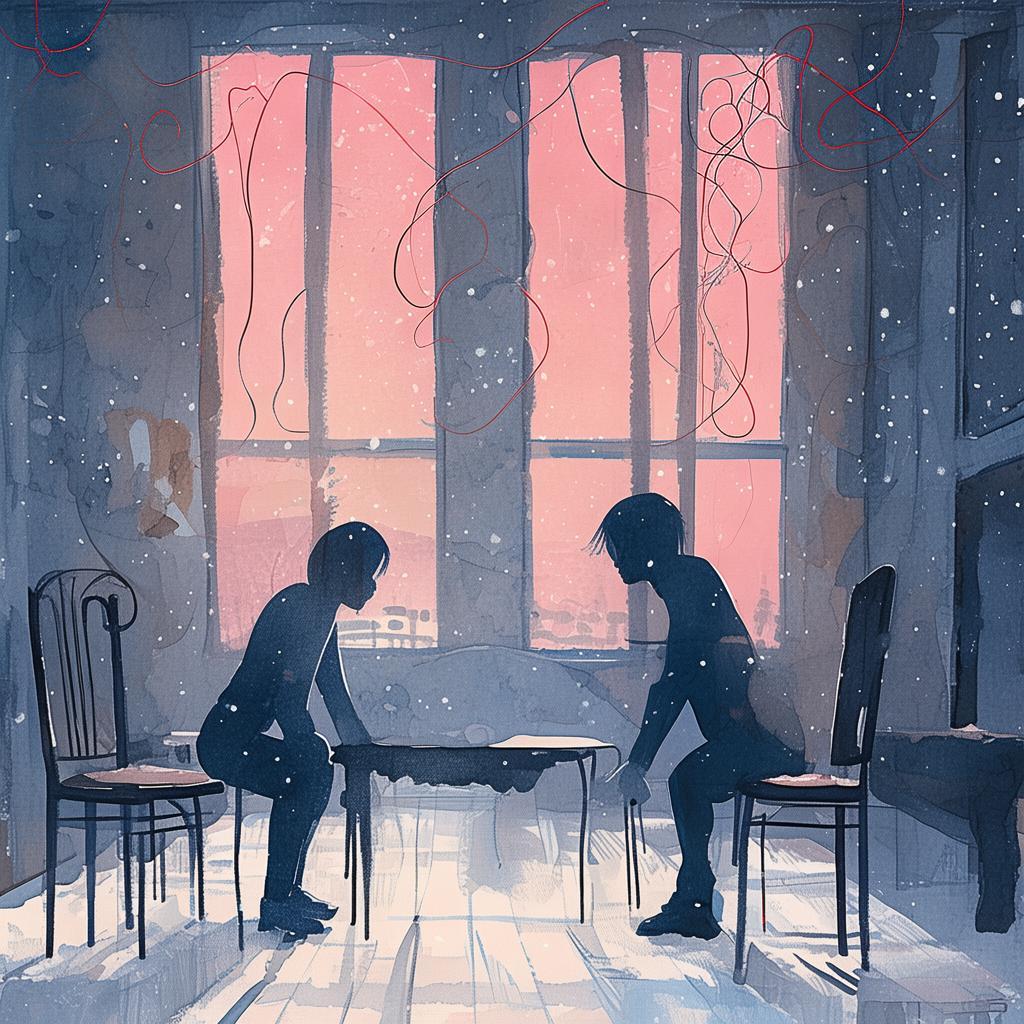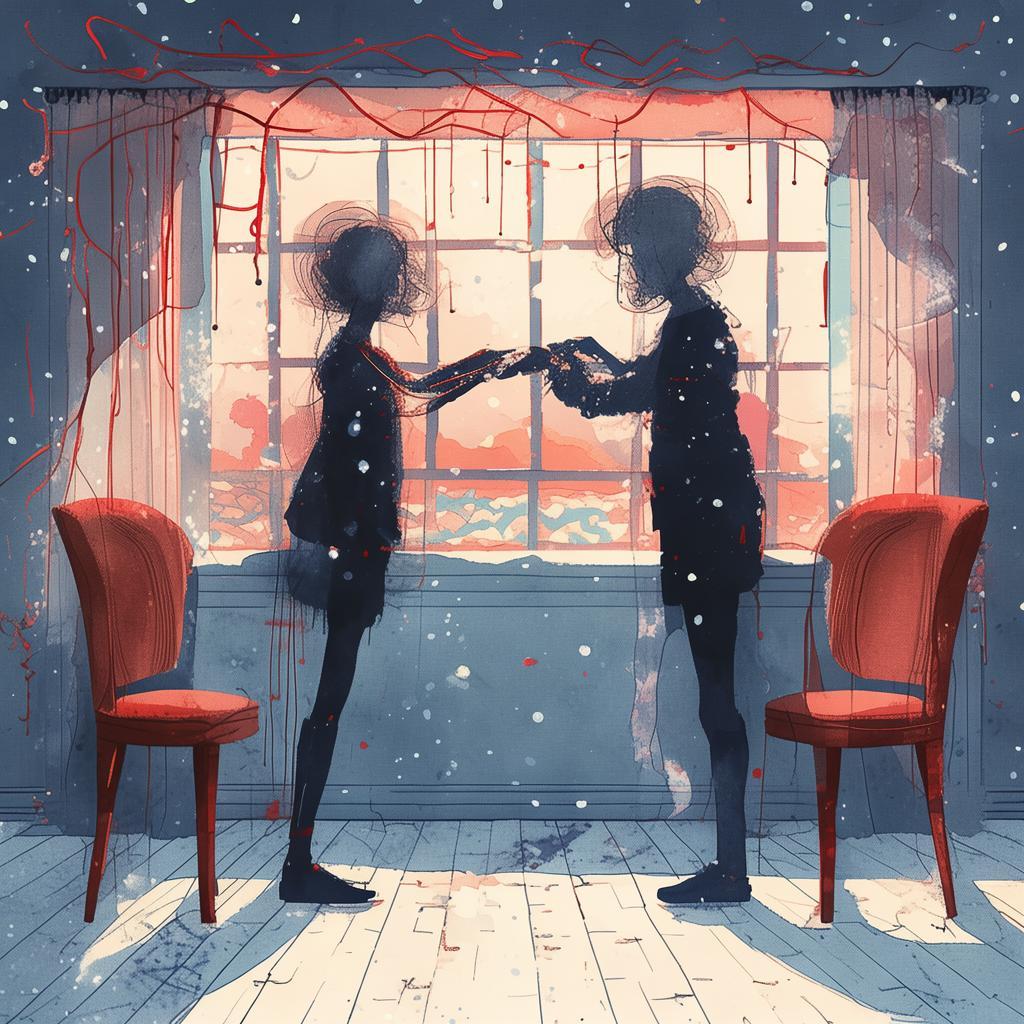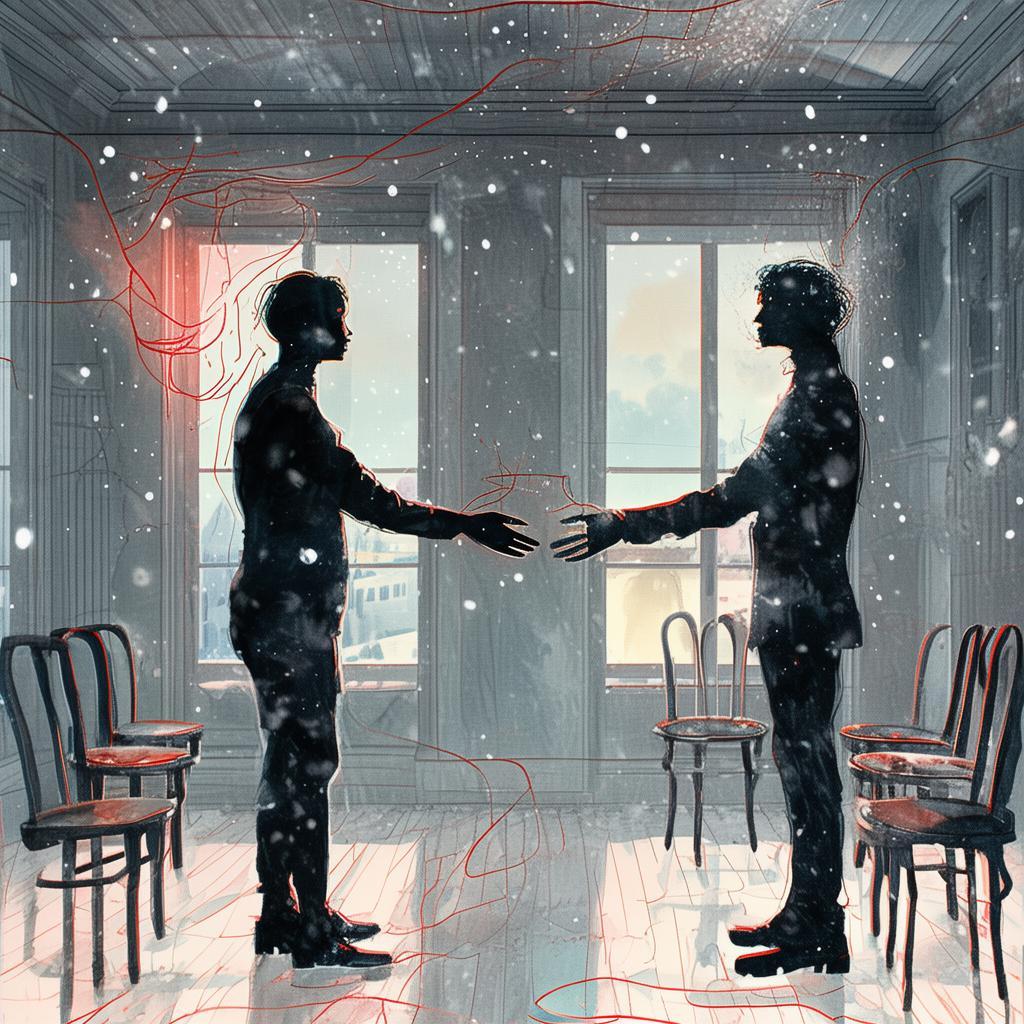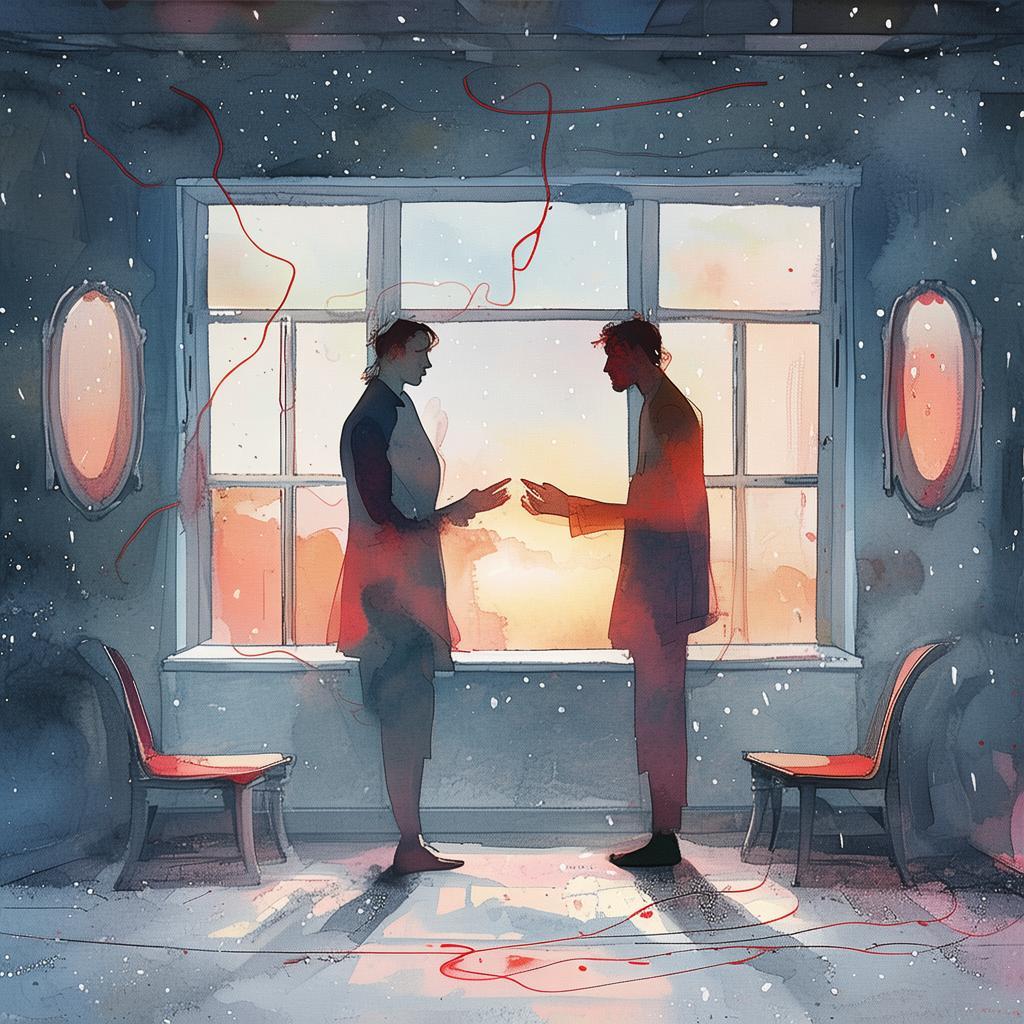Shadows on the Silver Screen
The night was shrouded in the soft glow of neon signs, their flickering lights casting an eerie dance on the rain-soaked streets of Los Angeles. In a dimly lit café, two figures sat across from each other, their faces illuminated by the flickering of a small screen. The man on the left was a director, known for his ability to bring the most complex emotions to life on the silver screen. The man on the right was a screenwriter, his words weaving intricate tales that captivated audiences.
Director: "This film, it's not just about the story. It's about the unseen desires of a film god."
Screenwriter: "And what is the unseen desire of a film god, exactly?"
Director: "It's the desire to be seen, to be understood. It's the longing for connection that transcends the canvas of the screen."
The screenwriter's eyes narrowed, intrigued. "And how do you plan to portray that?"
Director: "Through him, of course. He's the protagonist, the film god. But he's not just a character. He's me. And you."
The screenwriter's gaze sharpened. "You mean to say you're writing a part of yourself into the film?"
Director: "Exactly. And you, you're writing the other half."
Their conversation was a tapestry of unspoken desires, woven between the lines of their scripts. The director, known as Leo, was a man of many secrets, his past a tapestry of shadows and light. The screenwriter, Alex, was his confidant, his voice of reason, and the only person who truly knew the depths of his soul.
As the film's production progressed, Leo and Alex found themselves drawn to each other in ways they couldn't quite explain. Their passion for cinema became a conduit for their burgeoning romance, a love that was as complex and nuanced as the characters they created.
One evening, as they sat in the editing room, surrounded by the hum of computers and the glow of screens, Leo turned to Alex with a hint of vulnerability in his eyes.
Leo: "You know, Alex, sometimes I wonder if I'm creating these characters to explore my own desires, or if I'm just using them as a distraction."
Alex: "It's both, Leo. You're using them as a distraction, but you're also exploring your desires. It's all part of the same tapestry."
Leo: "I don't know if I'm ready for this, Alex. I've always kept my personal life separate from my work."
Alex: "And why is that?"
Leo: "Because my past... it's messy. It's not the kind of thing you want to bring into the light."
Alex: "But isn't that what cinema is about? The messy, the complex, the beautiful chaos of life?"
Leo: "You're right. Maybe it's time I faced my own chaos head-on."
As the film neared completion, Leo and Alex found themselves facing their own personal challenges. Leo's past began to catch up with him, threatening to unravel the delicate fabric of their relationship. Meanwhile, Alex's own struggles with identity and self-worth began to surface, casting a shadow over their love.
One evening, as they sat in the director's chair, Leo reached out to Alex, his fingers brushing against his skin.
Leo: "I need to tell you something. It's about my past. It's about why I've always kept it hidden."
Alex: "I'm here, Leo. You can tell me anything."
Leo: "I had a lover. We were young, and it ended tragically. I've never been able to let go of the guilt. It's like a weight on my shoulders, and I don't know how to carry it."
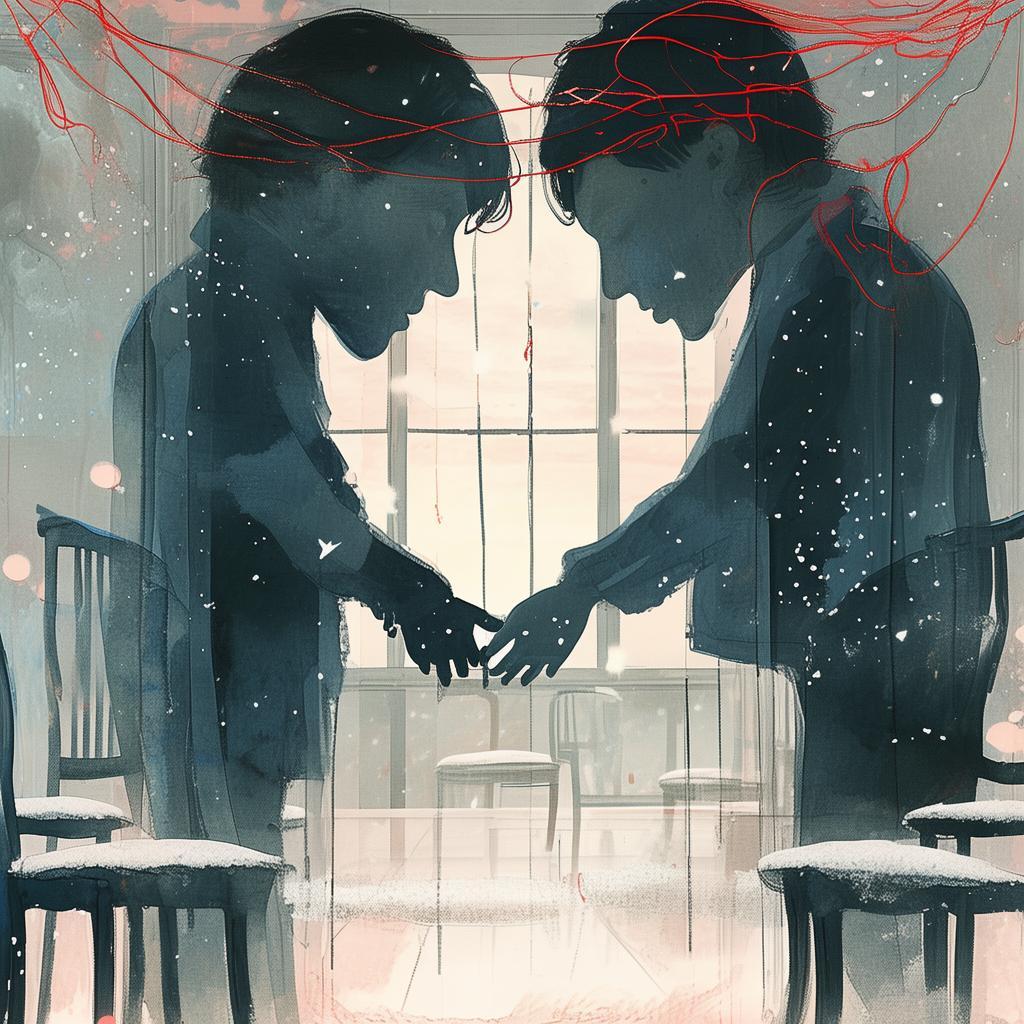
Alex: "Leo, we all have our burdens. But we don't have to carry them alone."
In the end, it was the film itself that became a catalyst for their healing. As they watched the final cut, the story of the film god and his unseen desires unfolded, reflecting the journey they had both taken. The film was a testament to the power of love, the strength of forgiveness, and the courage it takes to face one's past.
The screening was a success, and as the applause echoed through the theater, Leo turned to Alex, his eyes filled with gratitude.
Leo: "Thank you, Alex. For everything. For being my confidant, my partner, my everything."
Alex: "And thank you, Leo. For showing me that love can overcome even the darkest of shadows."
As they left the theater, their hands intertwined, they knew that their journey was far from over. But they were ready to face whatever came next, together.
Shadows on the Silver Screen was not just a film, it was a love story, a tale of two filmmakers who found solace in each other's arms, and the power of cinema to heal the deepest of wounds.
✨ Original Statement ✨
All articles published on this website (including but not limited to text, images, videos, and other content) are original or authorized for reposting and are protected by relevant laws. Without the explicit written permission of this website, no individual or organization may copy, modify, repost, or use the content for commercial purposes.
If you need to quote or cooperate, please contact this site for authorization. We reserve the right to pursue legal responsibility for any unauthorized use.
Hereby declared.
